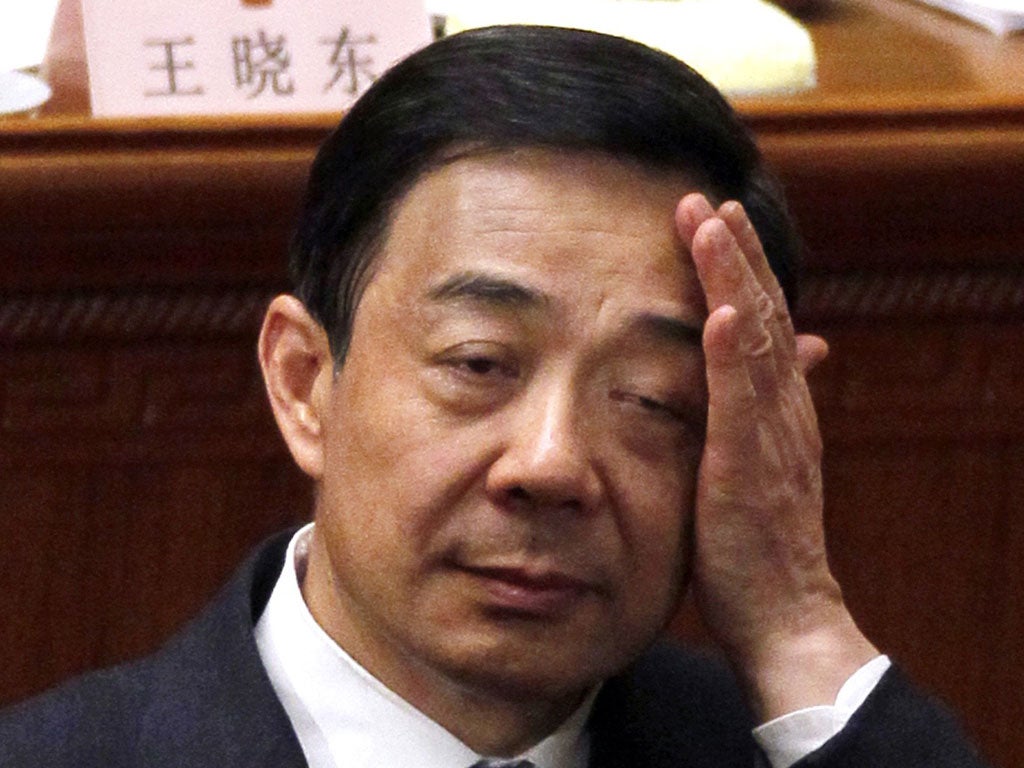Adrian Hamilton: China's struggle between reform and reaction

Your support helps us to tell the story
From reproductive rights to climate change to Big Tech, The Independent is on the ground when the story is developing. Whether it's investigating the financials of Elon Musk's pro-Trump PAC or producing our latest documentary, 'The A Word', which shines a light on the American women fighting for reproductive rights, we know how important it is to parse out the facts from the messaging.
At such a critical moment in US history, we need reporters on the ground. Your donation allows us to keep sending journalists to speak to both sides of the story.
The Independent is trusted by Americans across the entire political spectrum. And unlike many other quality news outlets, we choose not to lock Americans out of our reporting and analysis with paywalls. We believe quality journalism should be available to everyone, paid for by those who can afford it.
Your support makes all the difference.Barely had the Chinese Premier, Wen Jibao, finished his final press conference this week with some surprisingly open remarks about the need for more political liberalism in the country than the charismatic party boss of Chongqing was summarily fired.
"Ah ha," opine the China-watchers. "This heralds a struggle for power before the Congress meeting later this year." "No," say others. "It's an indication that the party bosses mean business when they say they are determined on more liberal courses. Bo Xilai set himself up as a flag-waver for old-fashioned communism – things the leadership wants to move away from."
Others argue that it is a personal thing, that the disgraced party boss signed his own death warrant by his association with a police chief arrested after apparently trying to get political asylum in the US.
Maybe. But the trouble with Forbidden City-watching, as we know too well from the decades of Kremlin-peering, is that very few have any real idea of what is going on behind the closed doors. Outside observers usually get it wrong, or rather, on the Soviet experience, nearly always miss the significant things and people that are emerging.
The simplest thing is to take such events as about what they are virtually always about in any society, democratic or authoritarian – which is simply power. Bo Xilai had set himself up as a popular figure in his own right with an eye for the top and suffered the fate of any feudal baron who seems to be setting up his own power base.
His promotion of the disgraced police chief – who must have done something pretty bad to cause him to seek flight to the US – didn't help. Nor did the fact that his campaign against corruption trod on some influential toes. But if this had been about a loyal and low-profile boss, would he have gone down with his protégé?
Does it mean the start of a fierce struggle for power at the top? That may happen. But it's just as likely that Bo Xilai's fall from grace marks the determination of the existing leadership to make sure a trouble-free transfer of power to the next generation this autumn.
Whether that means, a steady liberalisation of the country's politics is more problematic. Asked about Bo in his press conference, Premier Wen replied that there would be no return to the kind of red-flag-waving antics promoted by the sacked party boss. So he clearly meant business.
That business is not necessarily what the West thinks of as democracy or freedom. The strains on society of China's rapid growth – particularly among rural communities hit by corruption, pollution and land grabbing – have caused considerable concern in a leadership which always worries about China's propensity to fracture.
As the pace of growth inevitably slows and as labour costs rise and jobs are no longer created rapidly enough to absorb the rural migration to the cities, Beijing will change policies to contain these pressures.
That may mean giving local communities more say in their affairs and restraining the power of the party in the community. But it's unlikely to mean a vote in the choice of leadership or allowing competitive organisations to the party.
China's primary interest is in stability. If Bo Xilai has been summarily chopped, Tibet and the Uygur so-called "semi-autonomous" areas are still run by party bosses who are complete thugs in their suppression of any sign of dissent.
Reform in the eyes of the leadership is a process of adjustment not of radical change. Their problem is not so much political as the fact that it is now handing over to a leadership and a generation brought up in the one-child policy. What that means in terms of expectations and of responsibility no one can tell.
One rule for Congo, another for American troops
On Wednesday, the International Criminal Court (ICC) found the Congolese warlord Thomas Lubanga guilty of war crimes in using child soldiers. Meanwhile yesterday it was revealed that the US soldier thought to have been responsible for murdering 16 men, women and children in an Afghan village this week had been moved out of the country.
You would have to be in the furthermost reaches of the US hinterland not to know how this plays to the world at large. The West differs in the way it dispenses justice to, on the one hand, outsiders, and, on the other, its own.
In both cases the trials take place outside the borders and the jurisdiction of where the crime was committed. Yet, for justice to be served, it needs to be seen to be done. Holding trials outside the region of origin may ensure justice in a legal sense but it cannot achieve what matters most in these cases, which is closure.
Join our commenting forum
Join thought-provoking conversations, follow other Independent readers and see their replies
Comments